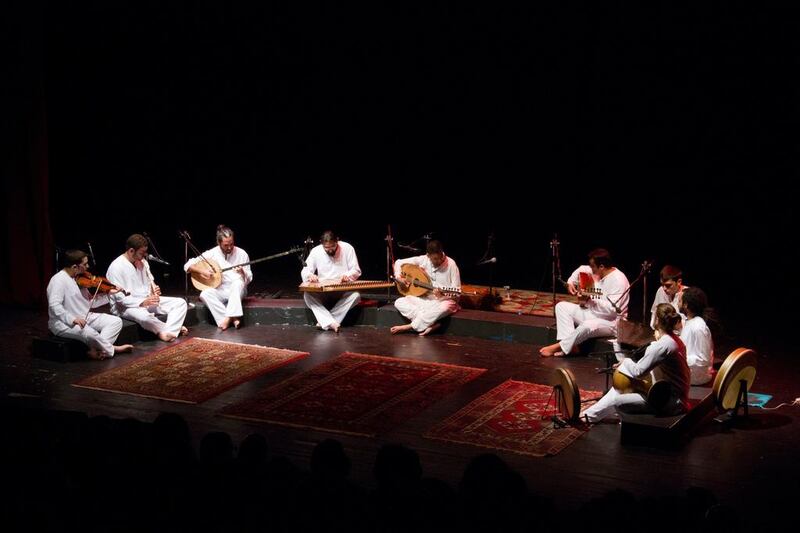The Abu Dhabi Festival is renowned for introducing audiences to exotic sounds spanning different cultures. This was underscored at the festival launch in January, when the Simón Bolívar Symphony Orchestra of Venezuela added a Latin touch to classic European compositions in a sold-out Emirates Palace performance.
With the Asil Ensemble, audiences are taken on a journey closer to home. The Beirut-based group perform tomorrow at Abu Dhabi Theatre as part of the festival’s special Arabic music programme, Bayt Al Farabi.
Led by the Egyptian musician and musicologist Mustafa Said, the 12-piece are on a mission to prove that Arab classical music has its own mysteries to unveil. All that’s required is musicians who aren’t afraid to do the research.
“At the moment the prevailing attitude is one of copying,” Said observes. “If the style is jazz, tango or rock then they will add that on top of Arab classical music. What we are trying to do is develop classical Arab music from within itself by taking from other Arabic music traditions from around the region.”
The Asil Ensemble aims to demonstrate just that, with a varied set. The programme’s first half is a performance of a suite of traditional songs from the Arab world. Genres include Qudud Halabiya (Muslim slow jam) and traditional Syrian folks songs heavy on refrains, with colloquial Arabic lyrics.
A guest vocalist will also appear to perform a-cappella pieces from the Levant.
It is after the intermission, however, when the Asil Ensemble will really showcase their talent with a string of original works.
“This part will be more like the normal performances that we play,” Said says.
“It is interesting because essentially it is an experiment. We are looking at sources that are closer to us – to add to our sounds. So, for example, we look at elements from Iraq in terms of its musical modes and old Arabic ship songs from other parts of the region. What we are doing is creating new music from classic sources.”
Said think there is not enough being done to revive the fortunes of Arab classical music.
“The public are only interested whenever the music refers to works by legends of the genre.”
“But even before that, you have musicians themselves who don’t know the history of their own music. They understand their instrument as something that is crafted as opposed to what it truly means,” he says.
It is primarily this observation that led Said to stop lecturing as a musicologist three years ago to focus on performance.
He says the more knowledge Arab musicians have about their musical history, the more effective they are in showcasing the region in global events such as the Abu Dhabi Festival.
“I am all for the dialogue of civilisation but the question is how are we going to do it?” he asks.
“Will this dialogue be conducted in a position where we are poor culturally and they are rich? What I hope to see is that more of us can exchange this dialogue from a position where we are all equal. No one is better than anybody and we all have something to contribute.”
• Bayt Al Farabi: The Asil Ensemble perform at the Abu Dhabi Theatre at the Breakwater, Corniche, tomorrow. Tickets are Dh50 from www.tickets.virginmegastore.ae
sasaeed@thenational.ae






